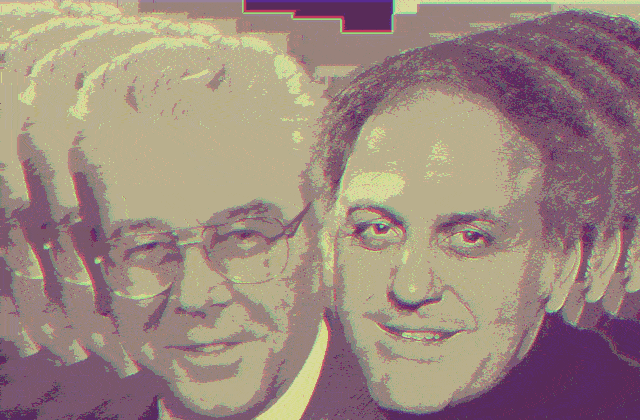In my final year as a student at Oberlin, I was given the opportunity to write a work for Tim Weiss and the Oberlin Sinfonietta. The work would not only be my largest project to date but would also, I hoped, serve as something of a musical conclusion to my time at the school. I knew immediately that I wanted to write the piece for two people who have had a greater role in shaping my experience at Oberlin than most: Josephine Stockwell and Nicholas Gallitano.
I also wanted to write for another influential duo: my grandfathers. Both of my grandfathers passed away in recent years, and it has been a personal goal of mine to remember them in music. The idea, then, was born: a work for a pair of indomitable musicians to commemorate another pair of indomitable people.
Concertante has three continuous movements. The first, Bounce, is a series of vivacious dances, celebrations of the spirit of all four of my dedicatees, and an exploration of Josephine and Nicholas’s virtuosity. As well as referring to the character of the music, the title, Bounce, has a second meaning. I took the title from the Stephen Sondheim musical of the same name. The show opens with the lyrics, “We’ve come a long way. / We’ve been through a lot. / We’ve learned how to bounce.” To bounce, for Sondheim as well as myself, is not just to move up and down, but forward, to bounce back, to be resilient.
The second movement, A Still Heart, is a lamentation for my grandfathers. The music is for them, but it has no program. It is just a musical wail, a single crescendo beginning with a simple, almost naïve melody in the piano that is eventually twisted and contorted into a feverish canon that ends with a screaming unison between the two soloists.
The third movement, Bounce Again, returns to material from the first movement. Rather than reach the same triumphal climax, however, Bounce Again ultimately dissolves into material from the second movement, A Still Heart. The previous jubilation of the movement has been tempered by the acknowledgement of loss. All that is left is a quiet, tranquil music, but a music that is perhaps not so naïve anymore.
With the deepest gratitude and admiration, I give this piece to Josephine and Nicholas, Raphael and Bruno.
